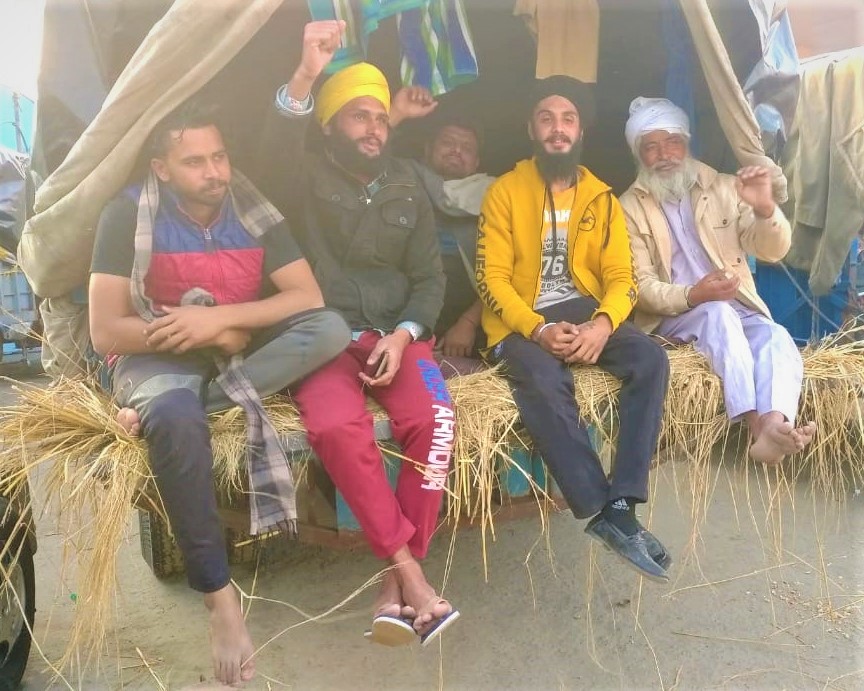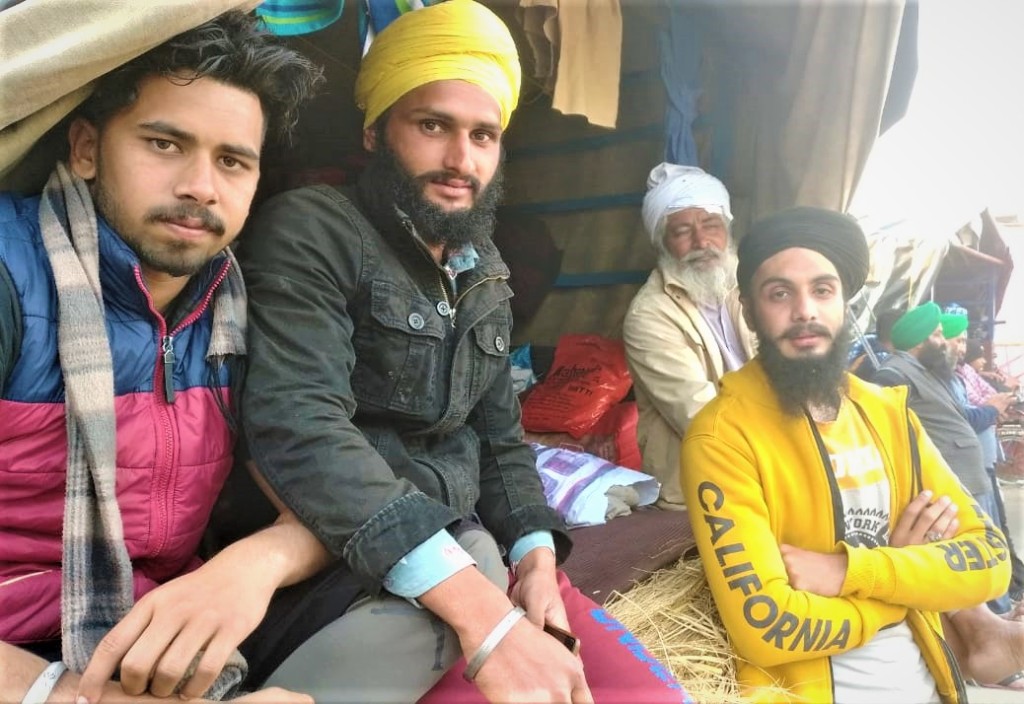
Ratna and Awbuck Qandoe
Singhu Border (New Delhi), December 13, 2020: Two tractors. Two trolleys. Nearly 50 people. About 450 kilometres. A massive heart attack. And an epic journey lasting two full days.
Life has oscillated from one border to another for a pack of gritty villagers who are protesting against the farm laws at the Delhi-Haryana border town of Singhu.
They are natives of the tranquil village of Rajatal in Punjab. It is among the last Indian hamlets near the India-Pakistan border on the western fringes of Amritsar district.
Rajatal, home to less than 3,000 residents, lies just one kilometre from the Radcliffe Line – the border that separates India and Pakistan. The village is located about 12 kilometres to the south of the Wagah border crossing and nearby Attari town.
“We belong to a peaceful village near the border with Pakistan. And now we have come all the way here, travelling 450 kilometres, to seal our case,” says a determined Tarman Bir Singh, a college student who hails from Rajatal.

Tarman is part of the 50-member team from Rajatal who reached the Singhu border on Sunday. The journey of the group, which includes several elderly gentlemen, from the India-Pakistan border region was arduous as well as treacherous.
“It wasn’t a walk in the park by any means. It was troublesome,” recounted Tarman while the others who came to Singhu with were resting in the trolleys attached to their two tractors. “On the trip, we came across other villagers from Punjab who met with accidents on their tractors on the way to this place. Trouble didn’t leave us even after we reached Singhu.”
He was referring to a 70-year-old from Rajatal who is part of the group. The elderly man suffered a severe heart attack right after reaching Singhu, and had to be rushed to a local hospital.

Chandan Bir Singh, another young member of the group who is also studying in college, sounded charged up on his mission to make his presence felt at the farmers’ protest.
“I am a student. Look at Tarman here, he’s a student, too. We are doing graduation back home in Punjab. Look at us closely. Ask the government here to have a good look at us. Do we look like terrorists or troublemakers to you?” he exclaimed, rubbishing rumours aimed at tarnishing the cause of the protesters. “We are here for a cause, to get the central government to repeal the farm laws, and we will go back only after ensuring that.”
Tarman is no less charged up. “This is going to be a long, long affair,” he predicted. “We are here for a long haul. But we will manage. We will sleep in the trolleys; some of us will sleep under the tractors. But we won’t leave Singhu till we get the job done. If this drags on, more of our village folk from Rajatal will join us, and we will take turn and protest here. But we are not giving up.”

Tarman said that contrary to popular belief, the atmosphere in his village is calm, with local farmers from both India and Pakistan crossing over the border during the day time to work on their land.
“It’s calm and quiet there,” said Tarman, looking back at life on the border with a nation that India has a turbulent relationship with. His family is mainly into wheat and paddy farming.

“My family’s farmland spreads right into Pakistan. But that’s not an issue,” he explained. “We are allowed by the border security to cross over to Pakistan to work on our land between 11am and 4pm every day. It’s the same case for the Pakistani farmers, too. They get to cross over to our side during those designated hours to work on their land, and then go back. That’s how life is over there. It’s not what many people here in the cities think it is. Not always tense. It’s a peaceful place.”









Tarmanbir singh is very nice person